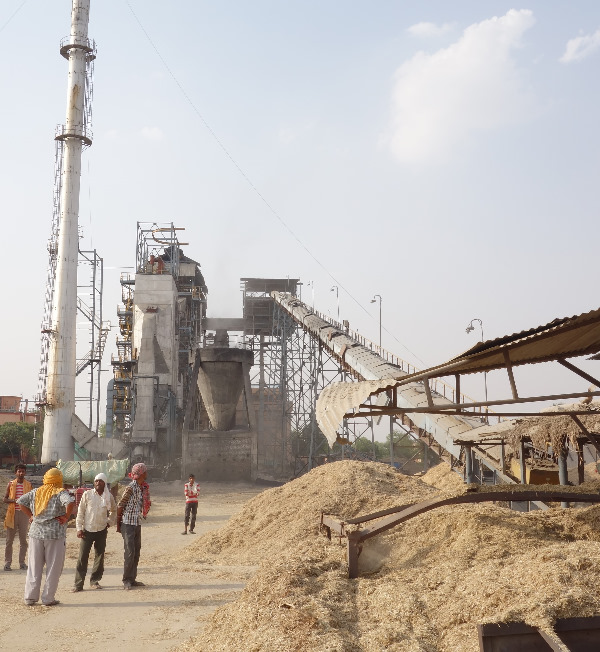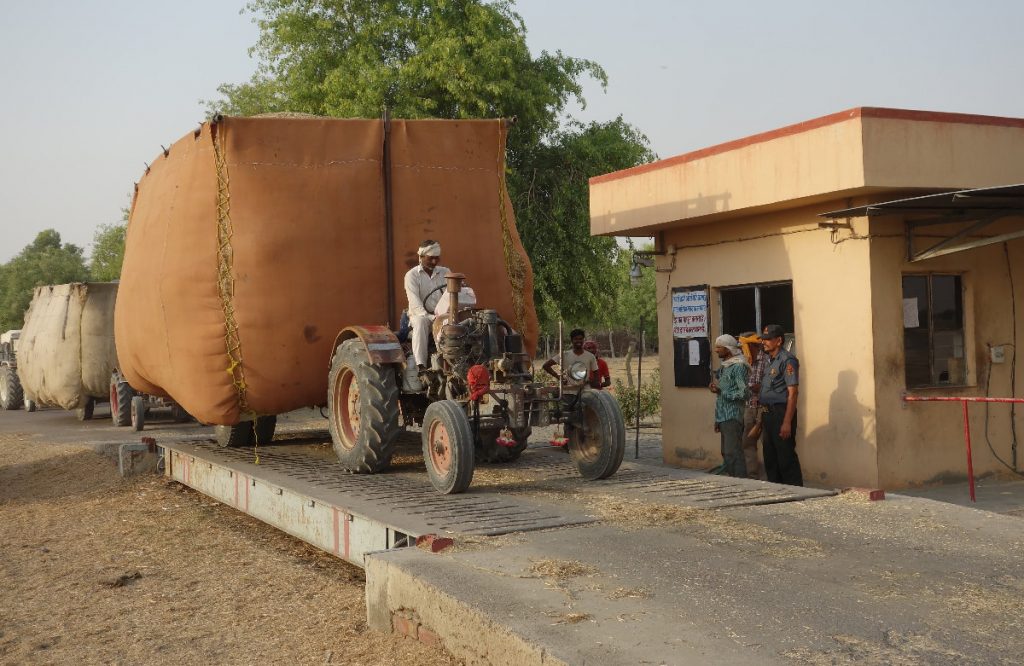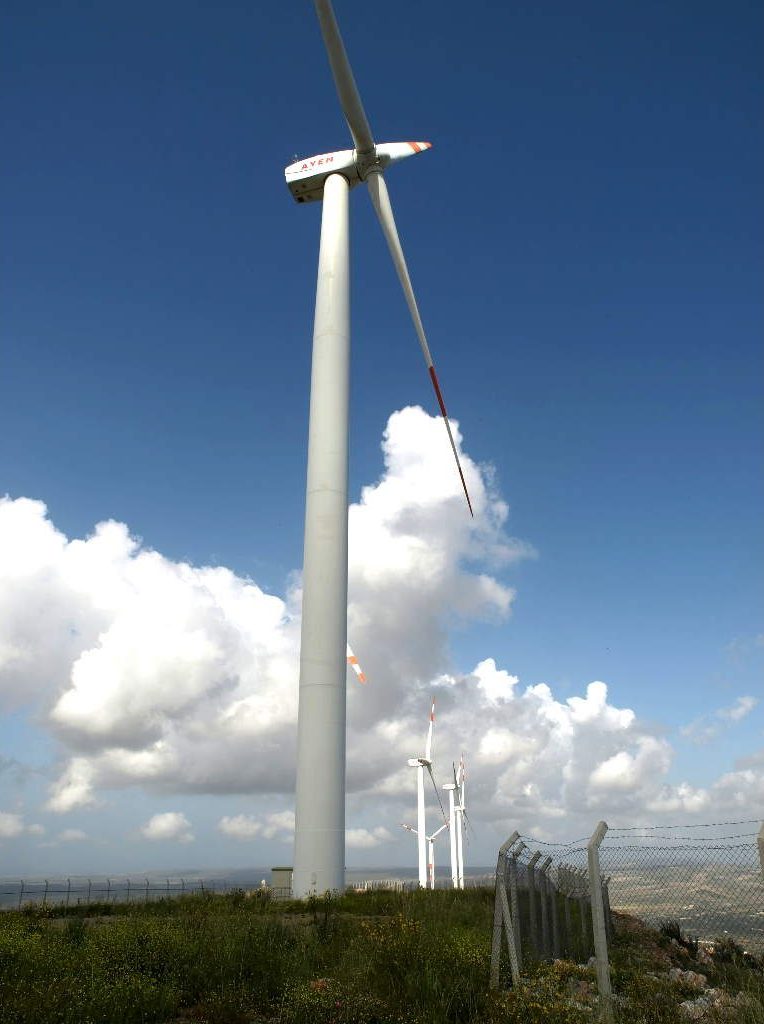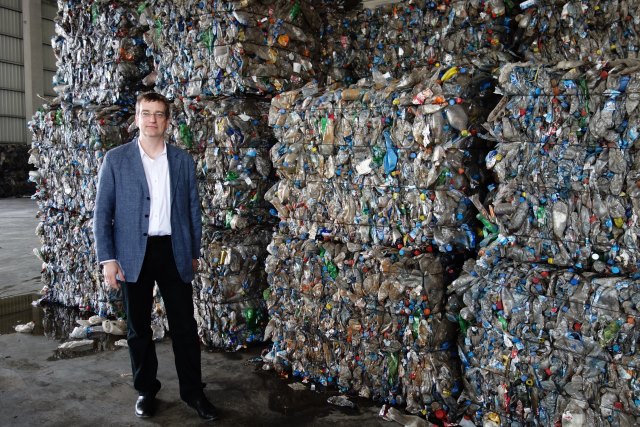Project Consultant (CDM/VER)
Some projects ecoblu participates as project developer or consultant are listed here as examples:
Electricity generation from mustard crop residues: Tonk, India
UNFCCC CDM Project, Ref. No. 1774 & Gold Standard CDM Project, Ref. No. 441

Electricity production from crop residues in Rajasthan, India. In 2012 Deutsche Welle has produced a short film (7 minutes) about this project, which is available in several languages: in Deutsch, in English, en español.
Located in Rajasthan, India, this project uses the harvest residues from the mustard crop in a biomass power plant to generate electricity. In the very dry climate of Rajasthan, mustard is one of the most important crops that can thrive here. Mustard oil is extracted from the mustard, which is used as a frying oil in Indian cuisine. The mustards and stalks left over from the harvest have not been used and therefore burned in the fields. Since 2007, a few thousand farmers now supply the power plant with the harvest residues. In addition to the collection point at the power plant, additional collection centers were set up within a radius of around 50 km of the plant to make it easier for the farmers to deliver. The delivered harvest residues are weighed there and the farmers are paid directly. At the power plant there is a storage area, so that even outside the harvest season enough material is available to generate electricity throughout the year.

It is an atmosfair climate protection project. The project operator is the Indian company KPTL (Kalpaturu Power Transmission Limited), a grid operator and electricity producer involved in numerous rural electrification projects. The owner of ecoblu has been supporting the project for verifications for several years. In 2015, the project was again successfully revalidated with the support of ecoblu and is now in the second crediting period from 2015 to 2022.
Mamak Landfill Waste Management Project, Türkei
Gold Standard VER Project, Ref. No. GS440
The project near Ankara includes landfill gas extraction and utilization. About 3,500 tons of garbage are delivered here daily. Part of the organic waste is used to operate an anaerobic digester. The extracted landfill gas and the biogas of the anaerobic digester are feeding in total 16 gas engines with a total capacity of 22.4 MW for power generation which is delivered to the grid.
The owner of ecoblu was significantly involved in the development of the monitoring concept and was responsible for the first verifications of the project.
Akbük Wind Farm Project, Türkei

Gold Standard VER Project, Ref. No. GS 436
31.5 MW wind project located in the Aydın province, Turkey. The project was developed by Ayen Enerji A.Ş. 15 wind turbines with a capacity of 2.1 MW each were installed.
The owner of ecoblu supported the first verifications, partly on site.
Hefei Longquanshan Landfill Gas Power Generation Project, China
UNFCCC CDM Project, Ref. No. 2810
The landfill is located near Hefei in Anhui Province. The project involves the extraction of landfill gas and avoids unhindered escape of the gas into the atmosphere. The landfill gas is mainly used to produce electricity by gas engines. Excess gas is destroyed by a torch.
The owner of ecoblu supported the process of the UNFCCC registration process and prepared the first verification. This included an on-site visit to check the monitoring system met the CDM requirements.
Switching of fuel from coal to palm oil mill biomass waste residues at Industrial de Oleaginosas Americans S.A. (INOLASA), Costa Rica
UNFCCC CDM Project Ref. No. 1314
In a soybean processing company, the steam generation was switched to the utilization of biomass. Essentially, non-reusable residual products from the palm oil industry are used for this purpose.
The owner of ecoblu supported several verification processes, one of them on site.
Adana Landfill Waste Management Project
Gold Standard registration number GS715.

This landfill gas project is located near Adana in southern Turkey. Beside the deposition of the garbage, part of the organic waste is used to operate a biogas plant. The landfill gas extracted from the landfill and the biogas of the anaerobic digester are feeding gas engines to produce electricity.
ecoblu supports the process of the initial verification and is responsible for the calculation of the avoided greenhouse gas emissions and their presentation in the monitoring reports. Since no CDM projects are possible in Turkey, the project was developed as a Voluntary Emission Reduction (VER) project and registered as a “Gold Standard Project”.
This side still under construction!
For some more project examples please refer to german version.
